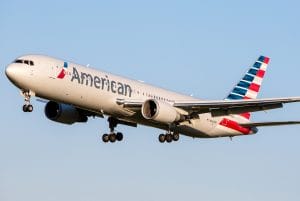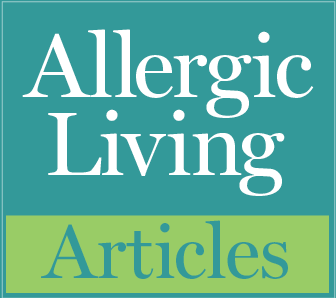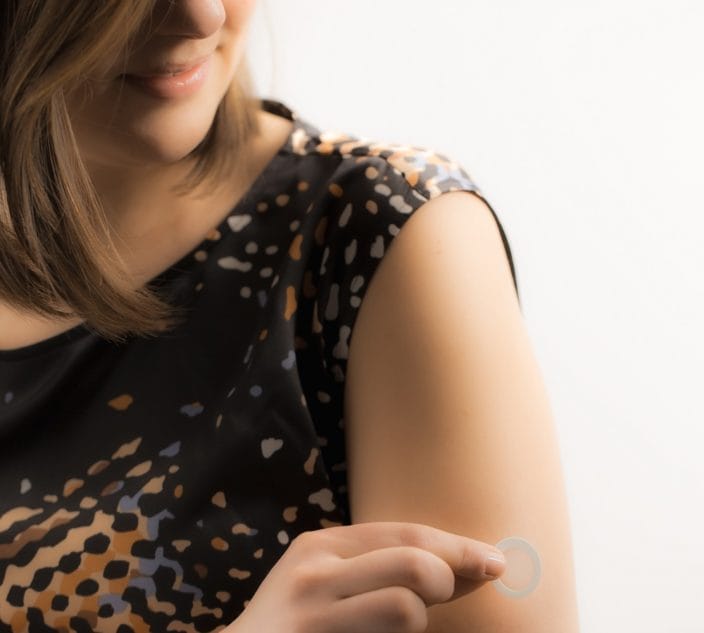 Photo: Getty
Photo: Getty American Airlines says that as of December 12, 2018, it will allow customers with peanut and tree nut allergies to pre-board flights in order to wipe down seats to remove allergen residue.
Previously, the airline specifically stated on its website that passengers with food allergies were not allowed to board early for this purpose.
FARE, the national food allergy advocacy organization, filed a complaint with the U.S. Department of Transportation regarding this policy in 2017, requesting the right to pre-board for any food allergy. While the American Airlines (AA) policy doesn’t encompass all that the non-profit was seeking, FARE still finds the move a step in the right direction.
“Anytime a company takes steps to address the needs of people with food allergies, we are pleased,” Lisa Gable, FARE’s CEO, told Allergic Living.
Given the airline’s chilly initial response to the complaints of FARE and individual families who travel with food allergies, the change is significant. However, an AA spokesperson confirmed to Allergic Living that the new policy will apply only to peanut and tree nut allergies, and not to other allergens such as milk, eggs or wheat.
“In our complaint, we noted the importance of allowing pre-boarding for passengers with food allergies and did not single out peanut and tree nut allergies,” said Gable. “It is our hope that the policy will in future include passengers with all diagnosed food allergies.”
FARE’s initial complaint was followed by a formal complaint in February 2017. It argued that by refusing to allow allergic passengers the chance to board early, AA was violating the Air Carrier Access Act, which states that passengers with a disability must be allowed to pre-board if they need extra time to board or get seated. The organization contended that this includes food-allergic individuals since “a disability is defined as a substantial impairment to a major life activity (such as breathing or eating).”
 Photo: Getty
Photo: Getty In its response, filed in March 2017, the airline said people with food allergies can experience “a range of allergic reactions,” and disagreed that all people with food allergy may have substantial impairments to major life activities. In announcing its new pre-boarding policy, the airline continued to say this wasn’t required as such under disability law.
Passengers and families with food allergies often wish to wipe down the whole seating area, including tray tables, armrests and window shades, which helps reduce the chance of being exposed to allergen residue from previous passengers. This is an important precaution, which is difficult to do while other passengers are trying to board.
Michelle Mohr, managing director of corporate communications for American Airlines, says the change puts the airline “in line across the industry broadly.” Delta, JetBlue and Southwest all allow pre-boarding for food allergy seat area wiping. United Airlines gives its gate agents discretion to permit this. (See Allergic Living’s Airlines and Allergy Policies Directory.)
Mohr adds that “we can’t guarantee our customers won’t be exposed to peanuts or other tree nuts during their trip – whether that is a product we serve or one that a customer has brought on board, or a customer that has nut dust residue, for example, on his or her clothing.”
She also confirmed that the airline does not have plans to change its practice of serving warmed nuts to customers in business class.
Gable says FARE is evaluating its next steps after this decision. Meanwhile, “FARE will continue to advocate for clear and consistently applied accommodation policies across all airline carriers,” she says.
Read more:
Fair Treatment in the Skies: Are Airlines Abusing Allergy Privacy?
Airlines Need to Get Serious About Food Allergies and In-Flight Auto-Injectors





